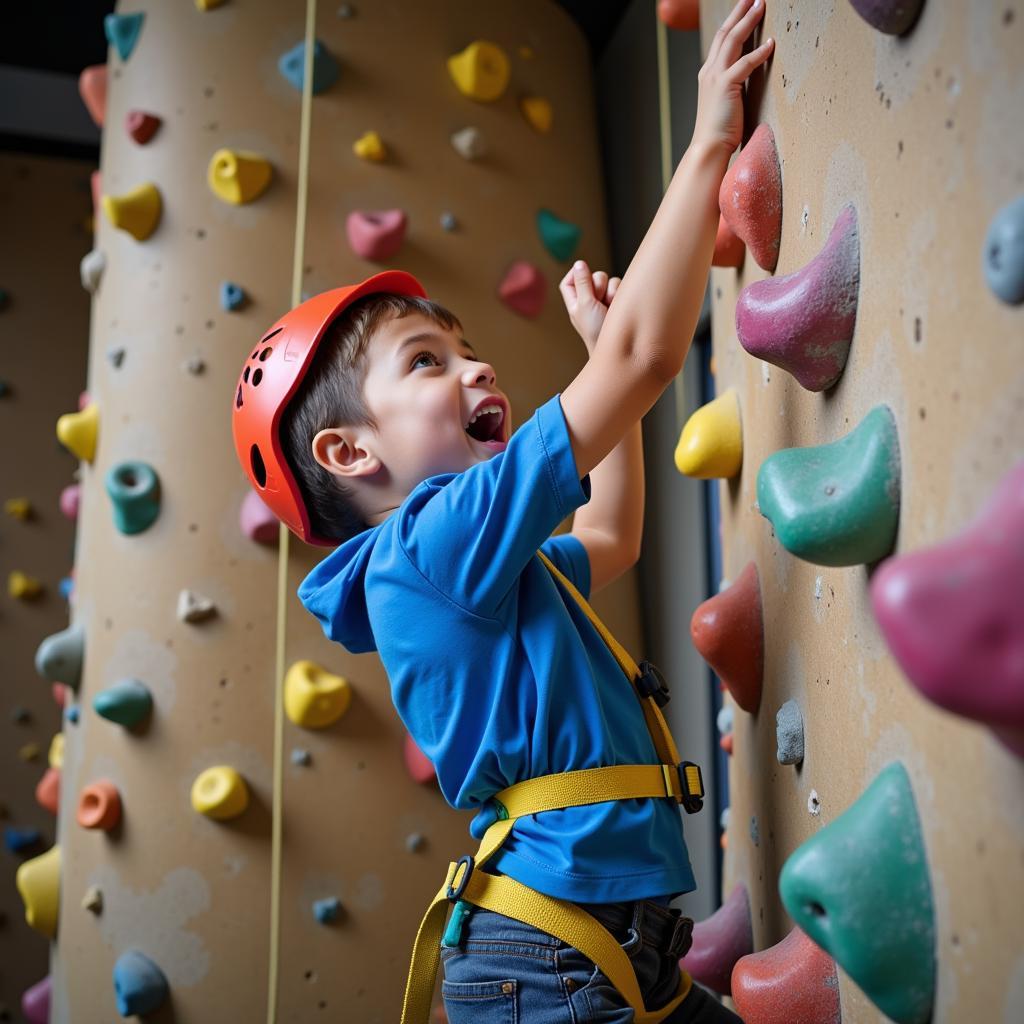The topic of describing people who enjoy trying new things frequently appears in IELTS Speaking tests. This versatile subject allows candidates to demonstrate their vocabulary range and ability to discuss personality traits and experiences. Let’s explore how to tackle this topic effectively across all parts of the Speaking test.
Part 1: Introduction and Interview Questions
Common questions you may encounter:
- Do you like trying new things?
- What kind of new activities have you tried recently?
- Is it important to try new things in life?
Sample Answer (Band 8-9):
“I absolutely love experiencing new things. Just last month, I took the plunge and tried rock climbing for the first time. It was both terrifying and exhilarating. I believe trying new things helps us broaden our horizons and develop resilience.”

Part 2: Cue Card
The Task:
Describe a person who enjoys trying new things
You should say:
- Who this person is
- What new things they like to try
- How you know about this person
- And explain why you think they enjoy trying new things
Similar to describe an experience that changed your life, this topic requires detailed personal reflection.
Sample Answer (Band 8-9):
“I’d like to talk about my cousin Sarah, who is an absolute adventurer at heart. She’s a 28-year-old marketing professional who constantly pushes her boundaries by embracing new experiences.
Sarah has an insatiable curiosity about life. Last year alone, she took up aerial yoga, learned Korean cooking, and ventured into cryptocurrency trading. What’s particularly remarkable about her is how she approaches each new experience with such enthusiasm and dedication.
I’ve known Sarah since childhood, and we’re quite close. Through social media and our regular catch-ups, I keep tabs on her latest adventures. Just like those who describe a new sport or activity they recently discovered, she always shares her experiences with genuine excitement.
I believe she enjoys trying new things because it gives her a sense of personal growth and accomplishment. She once told me that each new experience makes her feel more alive and connected to the world around her. Her attitude towards life is truly inspiring and has encouraged many others, including myself, to step out of our comfort zones.”
Part 3: Discussion Questions
Q1: Why do some people prefer routine while others constantly seek new experiences?
Sample Answer (Band 8-9):
“This difference in personality types can be attributed to various factors. Those who prefer routine often value stability and predictability, which helps them feel secure and in control. On the other hand, novelty-seekers tend to have a higher tolerance for uncertainty and are driven by the thrill of discovery, much like those who describe a person who loves traveling.”
Q2: How has technology made it easier to try new things?
Sample Answer (Band 8-9):
“Technology has revolutionized our access to new experiences in several ways. First and foremost, online platforms provide endless tutorials and courses, similar to how describe a person who enjoys cooking might learn new recipes through YouTube. Additionally, social media has created communities where people can connect with like-minded individuals and share experiences, making it less daunting to try something new.”
Key Vocabulary and Expressions
- Take the plunge: To finally decide to do something after hesitating
- Broaden one’s horizons: To expand one’s experiences and knowledge
- Step out of one’s comfort zone: To do something that makes one feel uncomfortable
- Insatiable curiosity: An endless desire to learn and experience new things
- Keep tabs on: To monitor or follow someone’s activities
- Venture into: To begin to do something new or different
Remember to practice these expressions naturally in context and focus on clear pronunciation and appropriate intonation to achieve higher band scores.